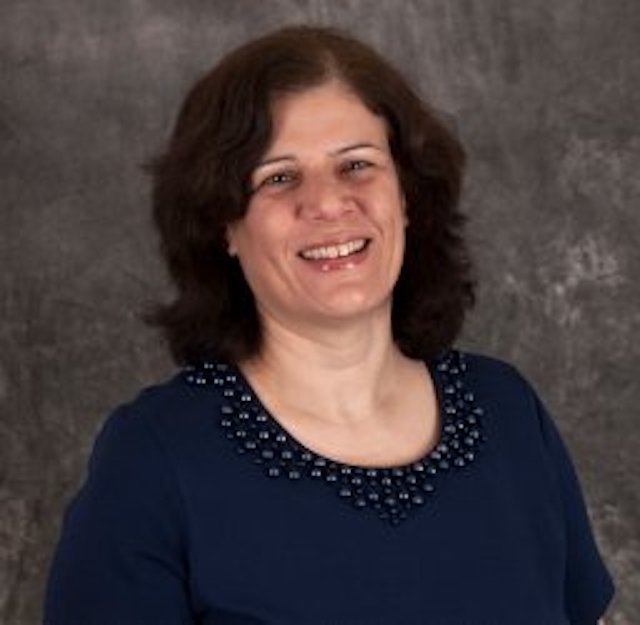From the Chair

chair and professor of chemistry
Greetings!
I would like to welcome you to the Chemistry Department of Missouri S&T as the 18th Chair and the 1st woman Chair of our department.
Chemistry is a central science at the crossroads of biology, biochemistry, medicine, physics, math and engineering, and also underpins large sections of the industrial enterprise (pharmaceuticals, agrochemicals, petrochemicals, polymers and other materials). From this vantage point, chemistry plays a pivotal role in virtually every aspect of our lives and is an essential tool to address many of our world’s current pressing issues such as the climate change, the clean & renewable energy, the food supply, and the pollution of the environment.
Our department offers American Chemical Society (ACS)–accredited Bachelor of Science degrees, with elective emphasis areas –also accredited by the ACS– in Pre-medicine, Biochemistry, and Polymer and Coatings. Our department also offers two graduate degrees, Master of Science (MS) (with thesis & non-thesis) and the Doctor of Philosophy (PhD). In addition, starting in the Fall Semester of 2023, the department will be offering an undergraduate certificate in Medicinal Chemistry designed to enhance the opportunities for our undergraduate students with the biotechnology initiatives within the S&T campus and the region, as well as a Graduate Track Pathway (GTP) program that will encourage our undergraduate students to take graduate-level courses and thus shorten the time to graduation with a Master’s degree if they choose to do so.
Besides a rigorous curriculum, all undergraduate students in our department are involved in experiential learning, a critical component of which is doing research in a faculty’s research lab of their choice. This type of activity is supported by several programs on campus including FYRE (First Year Research Experience), OURE (Opportunities for Undergraduate Research Experience) and UGSRS (Undergraduate Summer Research Scholarships), as well as via federal and non-federal grants awarded to our faculty. Upon graduation with a BS degree, our students have gone either to graduate school at Missouri S&T or elsewhere, including the top universities in the Country, others have gone to medical school, or they have entered the work force in industry, education (e.g., as high school teachers), and the public sector (state and federal agencies).
All PhD candidates in our department are supported with teaching and research assistantships and/or fellowships. The majority of our PhD students find lucrative industrial positions –some with 6-figure starting salaries– while others follow academic careers, or find jobs in state and national labs.
All our faculty is engaged in cutting-edge fundamental and applied chemical research. Research areas include materials chemistry (materials for energy conversion and storage, materials for CO2 capture and utilization, lithium and sodium ion batteries, materials for biomedical applications, porous materials including aerogels, nanodiamonds, MXenes, and photonic materials), solid state chemistry, physical chemistry (Raman, NMR, microwave/rotational spectroscopy, computational chemistry), organometallic chemistry and catalysis, organofluorine chemistry, medicinal chemistry/biochemistry (drug delivery and diagnostic platforms, DNA, RNA, antioxidants, DNA nanostructures), analytical chemistry (spectroscopic and chromatographic detection and analysis of biomolecules, nanoparticles, and pollutants), and polymers/coatings. We are currently targeting a significant expansion in the following three areas: (i) analytical with focus on bioanalytical chemistry, instrumentation, and electrochemistry; (ii) polymeric materials with emphasis on the development of new polymers for tissue bioengineering; and (iii) medicinal chemistry pertaining to synthetic methodology and development of pharmaceuticals.
You can arrange for a visit and tour of our department by calling 573-341-4420 or e-mailing chem@mst.edu.
Sincerely,

Chariklia Sotiriou-Leventis
Chair and Professor
Department of Chemistry
Missouri University of Science and Technology

Follow Chemistry